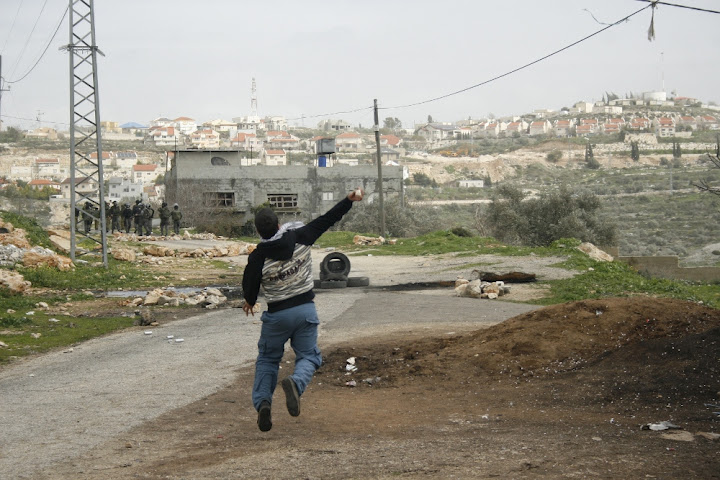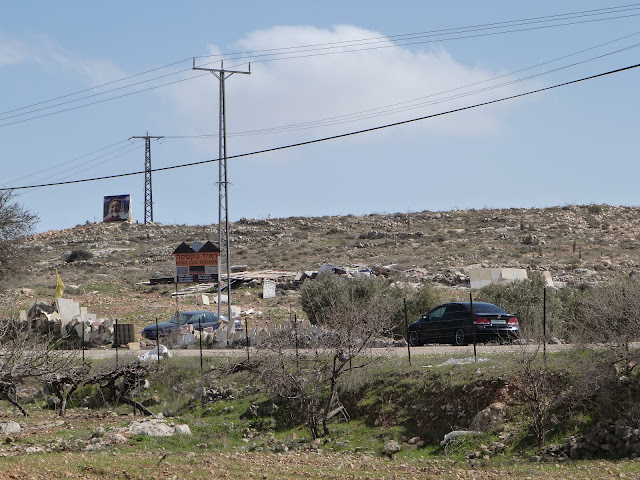Tag: Settlers
-
Jewish settlers and policemen defile Aqsa Mosque, clash with Muslim worshipers
19 February 2012 | Palestine Information Center OCCUPIED JERUSALEM, (PIC)– A group of Palestinian worshipers holding a vigil inside the Aqsa Mosque have fended off dozens of fanatic Jewish settlers who tried on Sunday morning to desecrate the Islamic holy site, and clashed with their police escorts. The Israeli occupation policemen spread extensively throughout…
-
Kufr Qaddoum: 5 people injured in demonstration
by Veronica 17 February 2012 | International Solidarity Movement, West Bank In advance of last week’s regular demonstration in Kufr Qaddoum the Israeli military attempted to prevent it by turning off the electricity supply to the village from 4AM that morning. But it did not deter about 150 Palestinians from the village from marching up…
-
Al Ma’asara: House on the seam of looming Apartheid Wall becomes center for peaceful resistance
by Aaron 14 February 2012 | International Solidarity Movement, West Bank There is a place where a ground-level concrete line runs beside a country road through olive orchards, grape vines, blossoming almond trees, and homes—all Palestinian. This is the projected path of a new segment of Israeli Apartheid Wall through Al-Ma’sara, a small village 13…


